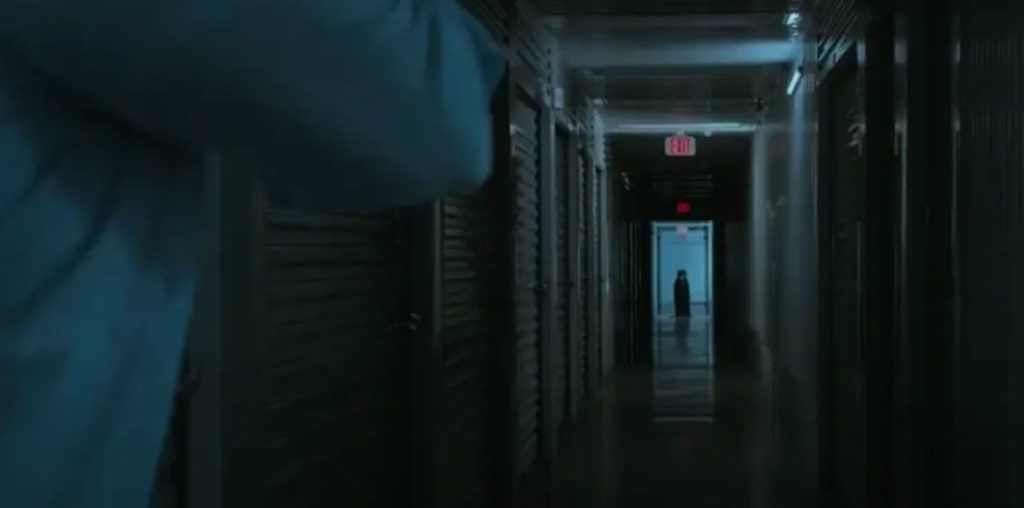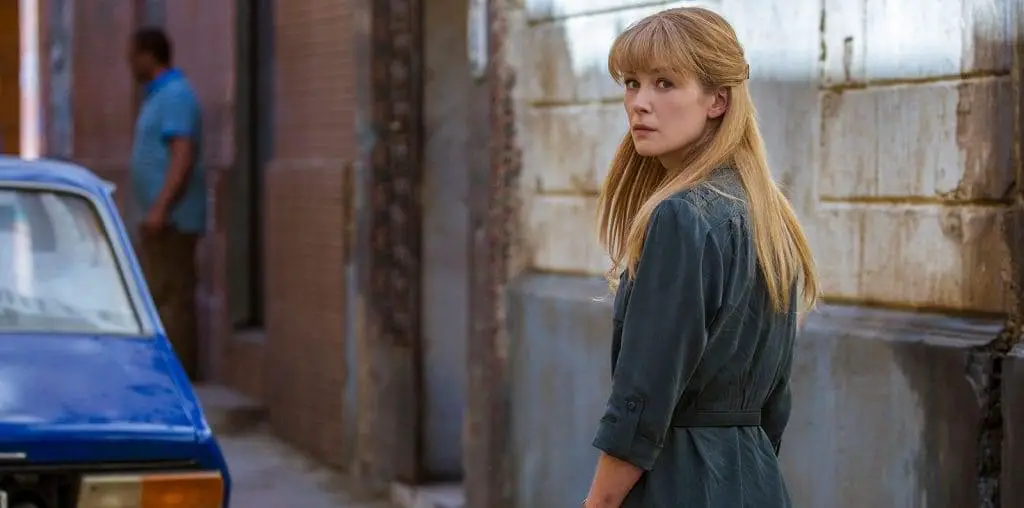
The tragedy of the 1994 genocide in Rwanda, where more than one million people were murdered within 100 days while the world did absolutely nothing to halt the madness, is the foundation of “Hotel Rwanda.” Key to this story is the true-life heroism of Paul Ruseabagina, the Hutu manager of a luxury Belgian-owned hotel in the Rwandan capital of Kigali, and his successful efforts in saving 1,268 Tutsi refugees from being slaughtered by rampaging Hutus. The refugees were provided with shelter and sanctuary in the hotel, which Ruseabagina ran when the European management fled the country.
On the surface, “Hotel Rwanda” seems like an African version of “Schindler’s List.” But unlike the Spielberg film, “Hotel Rwanda” is curiously antiseptic in exploring the personalities of those at the heart of the story. Ruseabagina is presented as a fastidious, unflappable presence who almost never breaks a sweat – even during situations when guns are pointed at his head. As portrayed by Don Cheadle (using an unpersuasive quasi-African accent), the man seems to be self-confident to the border of surreal. Much of his behavior seems unlikely and frequently unhuman. His bad advice dooms his Tutsi brother- and sister-in-law to death, yet he never expresses any regret or sign of remorse for their fate. In the midst of the chaos around him, he sets up an al fresco dinner for his wife on the roof of the hotel, even while gunfire is flying through the air around the structure. Is this how a real person would act?
Even worse is the failure to provide a genuine personality to any of the African characters around Ruseabagina. His wife Tatiana, played by British actress Sophie Okonedo, is a complete non-entity who exists solely to exchange fleeting reminders of love with her husband and to clutch their children while looking frightened. None of the Tutsi refugees are given a personality – they are nameless, voiceless masses huddled in some corner or hallway or sprawling across a seemingly endless road. A few nuns turn up with orphaned children in their care, which shows there were other Rwandans who showed mercy during the crisis. But the nuns are not given dialogue to identify who they are or what they went through – we have no clue if they are even Rwandan. Why was there an omission in sharing their story?
Fana Mokoena, playing a general who provides protection to the refugees as long as the bribery funds and goodies are flowing, is given a brief monologue at the end of the film about what life will be like in a post-war Rwanda. It is a fascinating and rueful speech and Mokoena has a great screen presence, but this scene’s very late arrival is annoying since the character was only a flat stereotype throughout the course of the movie.
Even more problematic is the attention given to two white actors who are given prestige billing despite limited screen time: Nick Nolte as the Canadian colonel in charge of the UN peacekeeping efforts and Joaquin Phoenix as a TV news cameraman who videotapes the beginnings of the genocide. Nolte’s growling, grimacing performance bears more resemblance to a bad Lee Marvin impersonation than a genuine performance. Phoenix, beareded and droopy-eyed, looks and sounds as if he was shaken from a nap right before he was cued to say his lines.
“Hotel Rwanda” also skimps considerably on the roots of the tragedy. There’s a Cliff Notes-style quickie summary of the centuries-old Hutu-Tutsi conflict at the beginning of the film, but it barely explains the depth of savagery unleashed in the 100 bloody days (most of the slain were chopped to death with machetes). The Clinton Administration’s nauseating waffling on whether to call the slaughter a “genocide” is touched upon, but little mention is given to how the neighboring African nations not only failed to provide assistance but also took dangerous sides in the mess. The result of the Rwanda misery was the destabilizing of central Africa through an unprecedented refugee population and the spillover of the civil war into other nations.
The film also presents the Rwandans in the worst possible way: venal, corrupt, vicious, stupid, barbaric and completely incapable of governing themselves. Honestly, I’ve seen more intelligent and sympathetic depictions of Africans in Tarzan movies.
“Hotel Rwanda” is rated PG-13, so the violence and gore factors are kept relatively low. We see dead bodies and people being beaten, but the true depth of what occurred is alluded to only. It’s not a genocide, but rather a genocide-lite.
Disagree with this review? Think you can write a better one? Go right ahead in Film Threat’s BACK TALK section! Click here>>>

